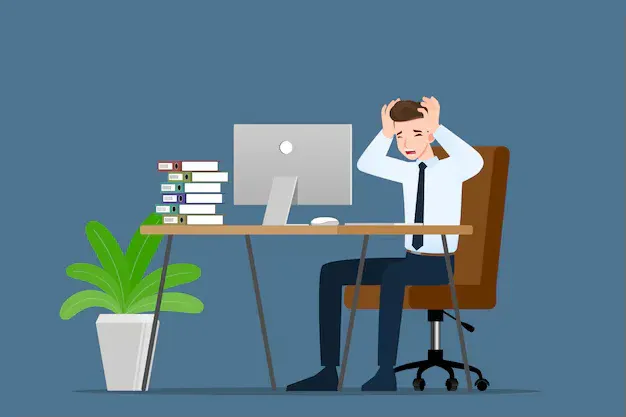Starting and growing a business is exciting but filled with unseen obstacles that affect daily performance. Entrepreneurs often underestimate small distractions that gradually erode focus and efficiency. These interruptions may appear harmless, but they accumulate, making critical tasks harder to complete. Recognizing them early helps preserve productivity and effective decision-making throughout the journey.
Entrepreneurship activity has grown in developed regions like the U.K., with more adults exploring self-employment opportunities. The Global Entrepreneurship Monitor report found that almost one-third of UK adults currently run or plan to start a business within three years. This trend highlights how an increasing number of people must navigate entrepreneurial challenges while maintaining focus.
This blog post aims to explore four major hidden distractions that entrepreneurs commonly face, offering strategies to overcome them.
Social Media Overload
Social media can feel essential for networking, but it often becomes a major source of distraction for entrepreneurs. Constant notifications, endless scrolling, and multiple platform management can interrupt focus and decrease overall productivity. Many business owners underestimate the time lost, which accumulates into hours of unproductive activity each week.
To address these issues, entrepreneurs must create structured routines and clear boundaries around platform usage. Scheduling dedicated time blocks for checking notifications, posting content, or engaging with followers can prevent constant interruptions. Tools for social media management, such as schedulers and analytics dashboards, also help consolidate tasks efficiently. Being intentional about usage ensures focus remains on core business priorities without digital distractions/
A study on ResearchGate explored the role of social media in driving digital entrepreneurship growth. The study found that Instagram, TikTok, and LinkedIn help businesses build their brand, connect with clients, and analyze behavior.
It also highlighted that technologies such as artificial intelligence and big data enhance content personalization and support strategic decision-making. These findings indicate that, when managed intentionally, social media offers substantial opportunities for business expansion and broader market reach.
Mental Fatigue and the Temptation to Disconnect
Entrepreneurs often face long working hours filled with strategic decisions, planning, and problem-solving. Over time, mental fatigue naturally accumulates, reducing focus, patience, and motivation. During repetitive or slow tasks, the mind craves short breaks to recharge energy. If unchecked, these moments of restlessness can evolve into distractions that disrupt workflow and productivity.
Many entrepreneurs seek ways to disconnect during periods of mental exhaustion, often turning to interactive activities like gaming. Certain games can even provide educational value, helping users develop business skills.
A survey in PR Newswire found that games like Venture Valley can deliver meaningful learning experiences. More than 80% of college students considered Venture Valley an effective tool for teaching entrepreneurship and business concepts.
Despite these educational examples, most popular games are intentionally designed to capture attention and foster addictive behavior. TruLaw reports that widely played titles such as Fortnite, Minecraft, Call of Duty, and Roblox include addictive features. These features can negatively impact players’ psychological well-being, leading to stress, distraction, and reduced focus over time.
Many individuals affected by these addictive games are now pursuing legal recourse. They are filing a lawsuit for video game addiction to seek justice and rightful compensation. These actions also aim to raise public awareness about the harmful design of many games, helping others avoid similar negative consequences.
Multitasking Misconceptions
Many entrepreneurs assume multitasking increases efficiency, but it often reduces overall effectiveness and focus. Constantly switching between emails, calls, and projects creates cognitive strain and raises the likelihood of mistakes. Humans are not naturally equipped to manage multiple complex tasks simultaneously without losing attention. Avoiding multitasking allows clearer thinking, better decision-making, and more accurate task completion.
A study in the National Library of Medicine found that roughly 40% of adults regularly multitask using digital devices. This frequent multitasking significantly increases stress levels and reduces overall productivity across work and daily activities. Research also shows that task-switching can reduce output by up to 40% due to the cognitive load required to move between tasks.
Chronic multitasking is associated with decreased cognitive control, poorer working memory, and difficulty filtering out irrelevant information. This ultimately impairs decision-making.
To address multitasking challenges, entrepreneurs should schedule single-task blocks and dedicate uninterrupted periods to critical activities. Using time management techniques like the Pomodoro method or structured intervals helps maintain focus. Reducing distractions, turning off notifications, and prioritizing tasks ensures more efficient work, improved cognitive performance, and less mental fatigue. Consistent focus also allows entrepreneurs to make clearer decisions and complete projects faster.
Interruptions From Team Members
Team interactions can unintentionally disrupt focus when communication is not managed effectively. Constant messages, calls, or impromptu discussions break concentration and reduce opportunities for deep work. Entrepreneurs often feel obligated to respond immediately, which fragments attention and delays critical tasks. Setting clear boundaries and expectations is essential to protect productivity and maintain workflow.
Frequent interruptions can lead to mistakes, slower project completion, and increased stress. Teams may unintentionally demand constant availability, leaving little uninterrupted time for high-priority work. Managing communication proactively helps ensure that interactions are meaningful rather than distracting. Planning dedicated time for focused work allows individuals to complete essential tasks efficiently and with higher quality.
To reduce the impact of team disruptions, entrepreneurs should establish structured communication routines and designated times for meetings or check-ins. Encouraging team members to consolidate messages or schedule questions improves overall workflow.
Clear guidelines around communication help preserve attention and create a more productive work environment. Consistent practices also enhance decision-making and reduce mental fatigue for everyone involved.
FAQs:
1. What is the most common distraction for entrepreneurs?
Social media is the most common distraction for entrepreneurs. Frequent notifications interrupt focus and reduce productivity significantly. Limiting scrolling and scheduling specific online periods helps maintain attention. Awareness of digital habits ensures mental clarity and allows business leaders to complete tasks efficiently and on time.
2. How does boredom affect entrepreneurial productivity?
Boredom often leads entrepreneurs toward online games or apps for quick relief, reducing work efficiency. These distractions slow progress on critical projects. Structured routines, short active breaks, and engaging alternative tasks can mitigate boredom while preserving focus. Awareness of triggers helps maintain consistent productivity.
3. Can team interruptions impact business success?
Yes, constant interruptions fragment attention and delay decision-making, reducing efficiency. Clear communication protocols and focused work hours minimize disruptions. Teams following these strategies report higher productivity. Entrepreneurs benefit from uninterrupted time to complete tasks and maintain momentum toward achieving business goals effectively.
Entrepreneurs face hidden distractions that can gradually reduce focus and efficiency. Social media, boredom, multitasking, and team interruptions all impact productivity significantly. Awareness allows business owners to implement strategies that protect attention and maintain momentum.
Structured routines, clear boundaries, and proactive habits reduce lost time. Recognizing these obstacles strengthens resilience and ensures long-term business success. Staying mindful allows focus to remain on priorities and essential growth tasks consistently.

